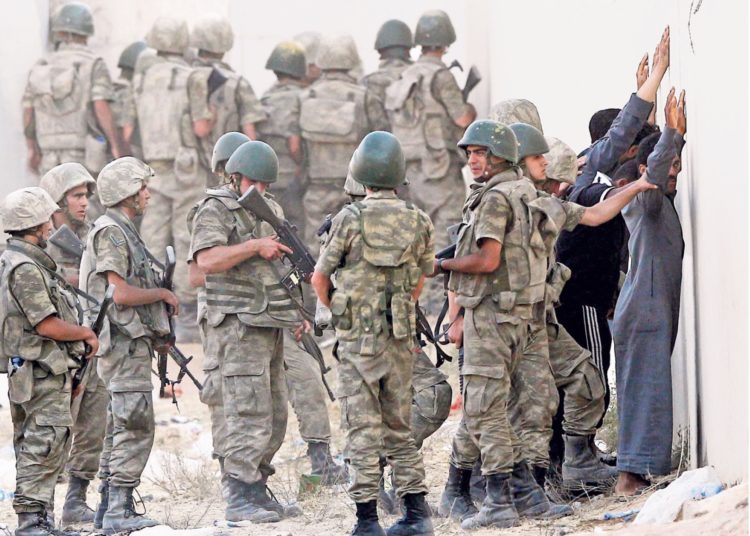The Turkish government has offered an exchange of Islamist State in Iraq and the Levant (ISIL) detainees of South African origin in Turkey for critics of the Islamist government of President Recep Tayyip Erdoğan living in South Africa.
A confidential source speaking to Nordic Monitor claimed that the Erdoğan government has tried to broker a deal with the South African government to extradite South African nationals who have been detained in Turkey on charges of ISIL affiliation. The proposed deal is conditioned on the agreement that Pretoria return to Turkey members of the Gülen movement, a civic group that is critical of the Erdoğan government.
The source, who asked to remain anonymous as he was not authorized to speak to the press, also maintained that South African officials balked at the request and stated that they did not consider the Gülen movement a terrorist organization, unlike Erdoğan. The movement, a one-time ally of Erdoğan, dropped its support for him in the aftermath of corruption investigations that incriminated then-Prime Minister Erdoğan in 2013 and due to his government’s support for armed radical groups including ISIL and al-Qaeda in order to topple the Bashar al-Assad regime.

A furious Erdoğan branded the group as a terrorist entity after losing its support, although there has not been a single violent act in the group’s four-decade-long history. The movement is led by US-based cleric Fethullah Gülen, who has been a staunch opponent of any violence in the name of Islam and an advocate of interfaith dialogue, which Erdoğan had ruled out between Islam and Christianity in a speech to members of parliament in Pakistan in November 2016.
The Turkish president also accuses the group of attempting a coup in July 2016 although evidence suggests that the abortive putsch was nothing but a false flag to set up the opposition, including the movement, for mass persecution. Gülen strongly denied any role in the failed coup and asked for an international investigation, which Erdoğan declined to pursue. Many believe the limited mobilization was the work of Erdoğan, who devised the plot with the intelligence and defense chiefs in order to pursue a mass purge of government officials including one-third of all judges and prosecutors, one-third of all diplomats and half the generals in the army. They were replaced with Islamists and neo-nationalists.
The Gülen movement has been active in education as well as in interfaith and intercultural activities in South Africa for decades, and its work has continued uninterrupted despite pressure on South Africa by the Erdoğan government.
There have been some cases in which ISIL tried to recruit militants in South Africa to stage terrorist acts, but the authorities were quick in investigating such cases. In October 2018, 11 men who were alleged to be linked to ISIL were accused of carrying out a series of bomb scares in Durban. A police raid uncovered a manual on how to make bombs, flags and ISIS propaganda – including an assassination plot.
Dozens of South Africans have reportedly travelled to Turkey to join ISIL in various capacities, and a few reportedly lost their lives on the battleground. Turkey has in the past deported some South African nationals who were believed to have travelled to Turkey to go to Syria. In April 2015 two teenage girls were removed from an aircraft in Cape Town after police had received a tipoff indicating they might have been headed for ISIL. Twin brothers Brandon-Lee and Tony-Lee Thulsie were arrested in July 2016 on terror-related charges after being accused of planning attacks on Jewish and American interests in South Africa. They are still in pre-trial detention, and their case is pending.
If the account provided by the confidential source who spoke to Nordic Monitor is true, Turkey is recalibrating deportation procedures to extract concessions from South African officials and have Erdoğan’s legitimate critics, who have nothing to do with any terrorism or criminal activity, sent back to Turkey, where they will face torture and ill treatment in Turkish prisons, as documented by the UN and nongovernmental human rights organizations.












